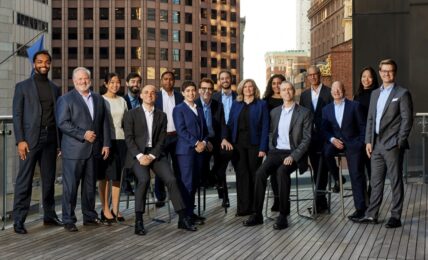Over half of companies are now disclosing at least some of their Scope 3 value chain emissions, up from around a third two years ago, according to a new survey released by Boston Consulting Group (BCG), although virtually no progress has been made on the proportion of companies comprehensively reporting across all emissions scopes, and fewer companies are on track with their emissions reduction ambitions relative to the prior year, the report found.
For the study, the CO2 AI + BCG Carbon Emissions Survey, BCG and enterprise sustainability management platform CO2 AI surveyed 1,850 executives with responsibility for emissions measurement, reporting, and reduction at organization with at least 1,000 employees and with revenues ranging from approximately $100 million to over $10 billion, across 18 major industries and 23 countries.
The report found that only 10% of companies surveyed comprehensively measure and report Scope 1, 2 and 3 emissions, marking no progress on this metric over the past year, and up only slightly from 9% in 2021.
Despite the lack of progress on full emissions reporting, however, the report did indicate signs of improvement, with 53% of respondents reporting that their carbon emissions reporting includes at least partial Scope 3 emissions, up from 44% in 2021, and from 34% in 2021. While Scope 3 emissions, which occur in value chain areas outside of companies’ direct control, such as supply chain or use of products, are typically the most difficult to measure and manage, they also make up the vast majority of most companies’ emissions impact, often accounting for more than 90% of emissions overall.
Similarly, an increasing number of companies reported that they have set reduction targets for their value chain emissions, with Scope 3 targets at 35% of companies, up from 29% last year and 23% in 2021.
While companies are increasingly setting targets, however, the report found that fewer are on track to meet their current goals, with only 14% reporting that they have realized more than 75% of their emissions reduction ambitions over the past 5 years, down from 17% last year. The survey examined the key obstacles to the achievement of companies’ emissions reduction goals, finding that macroeconomic conditions was most often cited as an “extremely significant” or “major” challenge, by 42% of executives, followed by capital constraints by 39%, and immature abatement technology by 35%.
The lack of progress on emissions reduction goals comes despite recognition of significant business benefits of decarbonization. More than half of respondents cited reputational value as a benefit of decarbonization, with other benefits reported including lower costs (50%), higher valuations (44%), higher revenues (41%) and the ability to attract the best talent (38%). 40% of respondents estimated annual financial benefits for meeting emissions reduction targets of at least $100 million.
Hubertus Meinecke, BCG’s Global Sustainability Leader and a coauthor of the study, said:
“There are encouraging signs of progress in measuring and reducing emissions, but it is crucial that businesses redouble their efforts. Doing so will not only help mitigate the impacts of climate change, but it will also deliver a boost to businesses’ bottom lines.”
The report also examined the top enablers allowing companies to achieve emissions reductions, with 39% of executives citing technology adoption as one of the most significant contributors to emissions reduction initiatives, with other key enablers including leadership buy-in (33%) and a sustainability-focused culture (32%). Many companies expect to use AI-powered technology for emissions management going forward, including 38% of executives expecting to use AI for baseline emissions management within the next 3 years, 36% for supply chain tracking, and 30% for emissions accounting and reporting.
Charlotte Degot, CEO and Founder of CO2 AI and a coauthor of the report, said:
“Businesses are increasingly acknowledging the transformative power of technologies and artificial intelligence in bridging the divide between their reduction ambitions and real, tangible impact. There is no time to lose in scaling these best practices.”
Click here to access the report.


